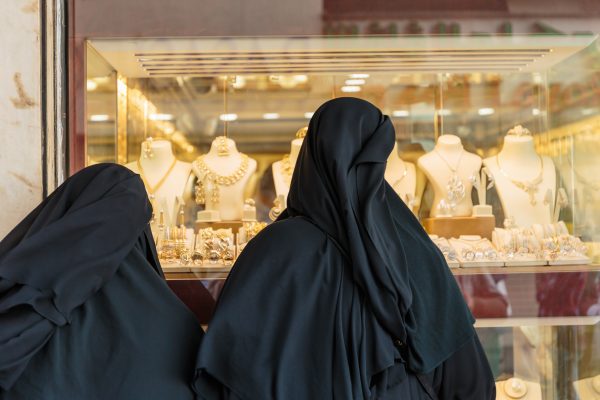When is the last time you looked at your spending habits?
When is the last time you looked at your spending habits?
What is Financial Freedom?
Financial freedom means having enough money to cover all your needs without a job or relying on others. It lets you retire or do what you love without worrying about money. But for Muslims, there’s more to it.
Islam teaches us not to ignore this world but to live in a way that honors Allah. We’re meant to take care of the Earth as Allah’s stewards. So, to reach financial independence, we follow Islamic values as our guide.
Let’s explore how we can achieve financial freedom while staying true to our Islamic beliefs and why financial freedom is important.
Why is Financial Freedom Important in Being a Muslim?
A practicing Muslim is a person who has eternal goals, such as standing up for truth, changing society, and playing a part in the revolution set forth by Prophet Muhammad صلى الله عليه وسلم. Therefore, they should have the time freedom to pursue their goals, particularly those related to the afterlife, regardless of their gender.
Financial freedom is not the ultimate goal, but it is a minor goal that helps achieve bigger and eternal goals. It’s not about having a lot of money, but rather having control over your money so that it doesn’t control you. It’s all about finding balance so that you can focus on what truly matters.
The world often tells us that achieving financial freedom is impossible unless you earn a six-figure salary, inherit wealth, or win the lottery. This lie discourages people from pursuing the goal, making it seem unattainable and distant.
However, financial freedom is not a destination but rather a journey that can begin at any point in life. Even someone with a simple salary can achieve financial freedom and start enjoying it at an early age.
The world also tells us that true happiness is expensive and requires material possessions such as a big house, fancy cars, and world travel. But this is not true. Happiness comes from within and doesn’t depend on external factors.
Should Our Peace of Mind Depend on Abundant Wealth?
Financial freedom is often associated with abundance and success, but is this what brings us peace of mind? According to Prophet Muhammadصلى الله عليه وسلم, true peace of mind can only be attained by setting our goals for the hereafter.
In a hadith narrated by Anas bin Malik, the Prophetصلى الله عليه وسلم said, “Whoever makes the Hereafter his goal, Allah makes his heart rich, and organizes his affairs, and the world comes to him whether it wants to or not. And whoever makes the world his goal, Allah puts his poverty right before his eyes, and disorganizes his affairs, and the world does not come to him, except what has been decreed for him.” (Tirmidhi)
This does not mean that Islam discourages seeking wealth and riches, but rather, we should avoid making money or wealth the center of our attention. Instead, we must make the correct intention by making Allah’s pleasure the ultimate goal.
The Prophet (صلى الله عليه وسلم‘(s companions exemplified how wealth never distracted them from a life of worship and obedience to Allah. Hazrat Uth`man bin Affan was among the companions who were wealthy, but he was also known for his generosity.
For example, Hazrat Uth`man bought the Well of Roum`ah from a Jew to provide clean water for the Prophet’s companions. He also donated his wealth to support the Prophet’s military expeditions and gave away his goods to the people of Madinah who were suffering from famine. From this example, we can learn that the purpose of wealth in Islam is to facilitate us in our worship and in helping others.
It is important to note that we do not have to wait until we are extremely wealthy to do acts of worship and kindness. When we work towards financial freedom, we should make a firm and clear intention that we do it solely to increase our good deeds and to seek means for Allah’s pleasure.
7 Basic Rules You Can Apply for Financial Success
1. Defining Your Values
Begin by understanding the core values guiding your life. Take time to identify and articulate three values that hold significance for you. Reflect on why they matter and how they influence your financial decisions. This introspection will act as a compass in your financial journey.
Live and Earn with Integrity:
- Seek work that aligns with your values: Look for opportunities that are not only financially rewarding but also contribute positively to society or align with your ethical convictions. Research companies and their practices before accepting a job.
- Embrace fair and honest dealings: Build a reputation for integrity in all your transactions, big or small. Avoid shortcuts or unethical practices, even if they promise quick gains.
2. Risk and Investments
Beware of investments that seem too good to be true. Often, promises of significant returns come with substantial risks.
Ensure a thorough understanding of any investment opportunity. Avoid risking your wealth on ventures with uncertain outcomes, despite enticing promises.
3. Self-Investment
Time is an invaluable asset. Invest it wisely in activities that contribute to your financial growth.
Engage in continuous learning—seek advice from experts, read books, participate in educational programs, and acquire knowledge that will bolster your financial acumen.
4. Plan a Comprehensive Budget
Ignorance of your financial situation can lead to overspending and debt accumulation.
Develop a comprehensive budget that encompasses your earnings, expenditures, and outstanding debts. Categorize expenses into essentials and non-essentials to gain clarity on your financial landscape.
5. Debt Management
Prioritize settling outstanding debts, especially those accruing high interest.
Being debt-free liberates your finances, allowing you to save and invest more effectively for future endeavors.
6. The Power of Giving
Charity isn’t solely about offering financial assistance; it’s a transformative practice that shapes character and purifies wealth.
Embrace the Islamic values of zakat and voluntary charity to empathize with the less fortunate and spiritually enrich yourself.
7. Always Work Hard
Success demands diligence and knowledge. Whether starting a business venture or delving into investment markets, thorough understanding and hard work are essential.
Educate yourself about market dynamics, economic factors, and the intricacies of your chosen path.
In a Hadith, the Prophet Muhammad صلى الله عليه وسلم teaches us that it is better to be the giver than the taker. We should strive to be financially independent and not rely on others for support unless we are in a state of extreme need. Begging or depending on unemployment benefits is not a dignified way of living.
Muslim Women and Financial Freedom
Islam provides women with extensive rights that prevent men from treating them unfairly. Women receive a nuptial gift from their husbands, and all the wealth they receive is their property without any interference from their family members.
Even if women invest their money in business or are employed in a firm, they are the sole owners of the fruits of their labor. However, despite women’s financial independence, their husbands are responsible for supporting them and their families financially.
Sadly, Muslim majority countries generally score poorly on women empowerment and gender gap even though Islam has established a strong financial foundation for women’s rights.
One reason is that Muslim societies have traditionally been conditioned to believe that activities like higher education, employment, and social activism are outside of a woman’s natural sphere of activity. A righteous society must balance a woman’s empowerment and her duties towards her family and society.
It’s crucial to strike a balance between professional and family commitments for both men and women, and this balance has its own rewards. It requires extra efforts in terms of training and education to maintain the undisputable standards set for women in public spaces.
We should not deprive women of their fundamental rights like pursuing their professional careers and intellectual pursuits under the pretext of guarding their honor and dignity.
The Question is What Do We Have To Do?
I have firm faith that the first step is spending! We have to look into the spending pattern.
There are many things we need to attain financial freedom such as increasing the income sources and investing in the right way, but the key is to have control over our spending.
Attaining Balanced Spending
The aim is moderation in our expenditures. It’s about finding equilibrium—not being excessively thrifty with essentials or extravagantly careless.
Our goal is to spend thoughtfully on necessities, provide for our loved ones, set aside for emergencies, and invest in our future.
Exploring four Quranic verses sheds light on balanced spending:
1. Advocates for giving to relatives, the poor, and travelers while cautioning against wasteful expenditure:
Surah Al-Isra’ Verse 26:
And give the relative his right, and [also] the poor and the traveler, and do not spend wastefully.
2. Encourages enjoying the fruits of labor but emphasizes avoiding wastefulness:
Surah Al-An’am Verse 141: َ
Eat of the fruit they bear and pay the dues at harvest, but do not waste. Surely He does not like the wasteful.
3. Advises against both miserliness and excessive spending:
Surah Al-Isra’ Verse 29:
And let not your hand be tied (like a miser) to your neck, nor overextend it (like a spendthrift) means, nor be extravagant in spending and giving more than you can afford, or paying more than you earn, lest you become blameworthy and find yourself in severe poverty.
4. Emphasizes maintaining balance—neither excessive nor stingy in spending:
Surah Al-Furqan Verse 67:
And [they are] those who, when they spend, do so not excessively or sparingly but are ever, between that, [justly] moderate.
In these four verses from the Quran, we’re urged to find a middle ground in our spending—neither excessive nor overly frugal, but maintaining a fair and just balance.
Being moderate in spending is an Islamic principle that guides us to be just individuals. It’s about finding equilibrium, and I believe this approach is a key asset in navigating financial crises and even discovering opportunities within them.
Now is the time to introspect and reevaluate our spending habits. Let’s begin this journey of introspection, seeking to change our behaviors and habits for the better.
This shift toward balanced spending could be our shield in uncertain financial times and the gateway to unexpected opportunities.





